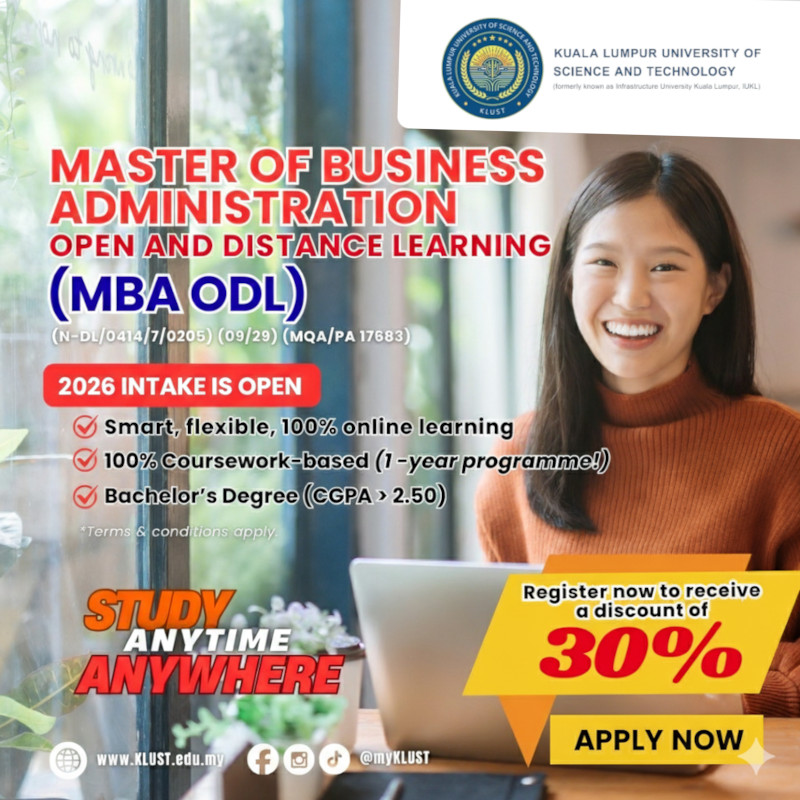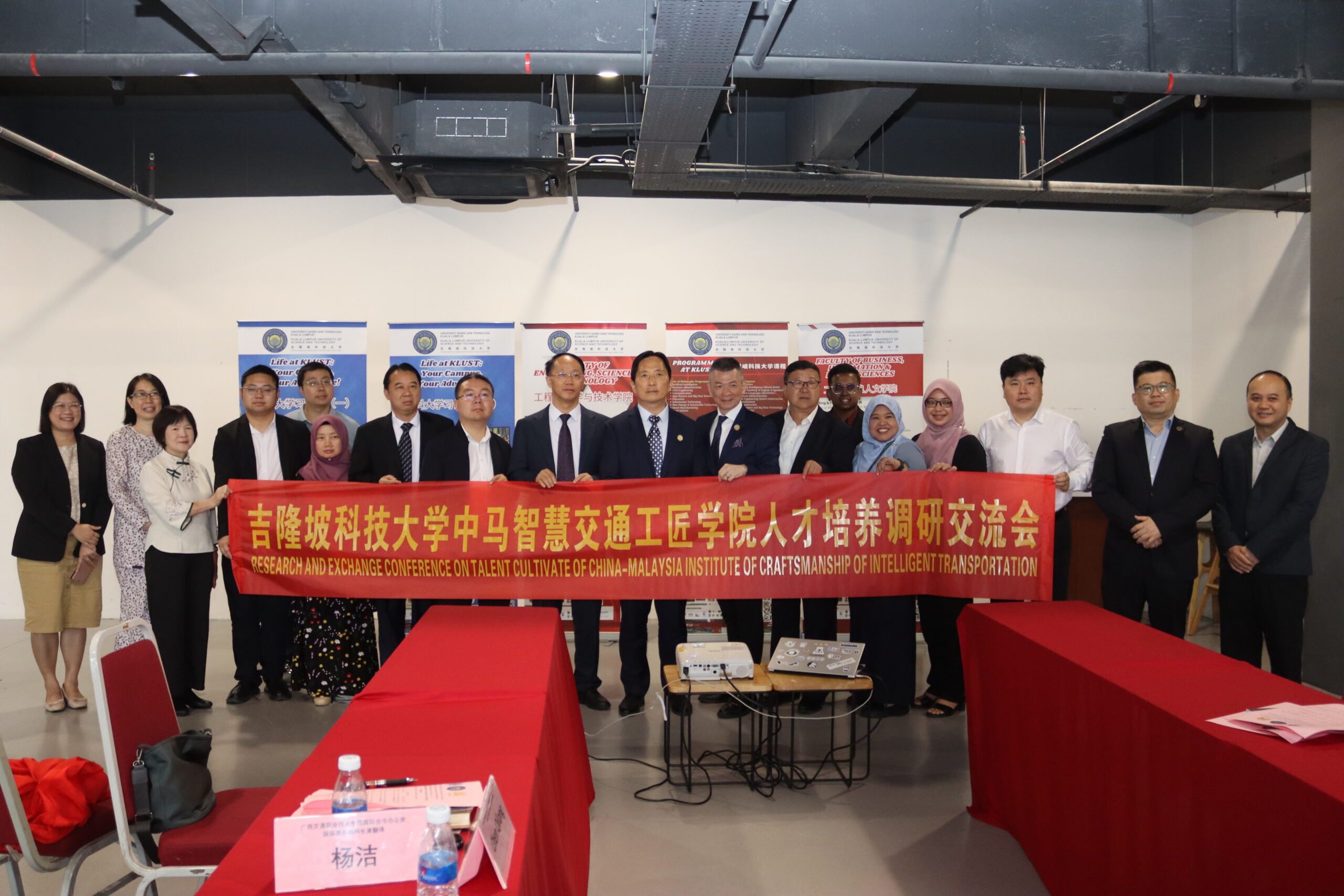
KLUST was pleased to receive the delegation from Guangxi from 17 to 18 November 2025, led by Professor Li Wenyong from Guangxi Transport Vocational and Technical College and Mr. Hu Weijie from Guangxi Transport Science and Technology Group Co., Ltd., alongside representatives from MC International Education Centre Sdn Bhd. The series of meetings involved comprehensive discussions on establishing a “Luban Workshop,” collaborating on electric vehicle talent development, and planning the “China-Malaysia Smart Transportation Laboratory,” marking a significant step into a new phase of substantive educational cooperation.
Day One Focus: Collaborating on the Luban Workshop and Electric Vehicle Talent Development
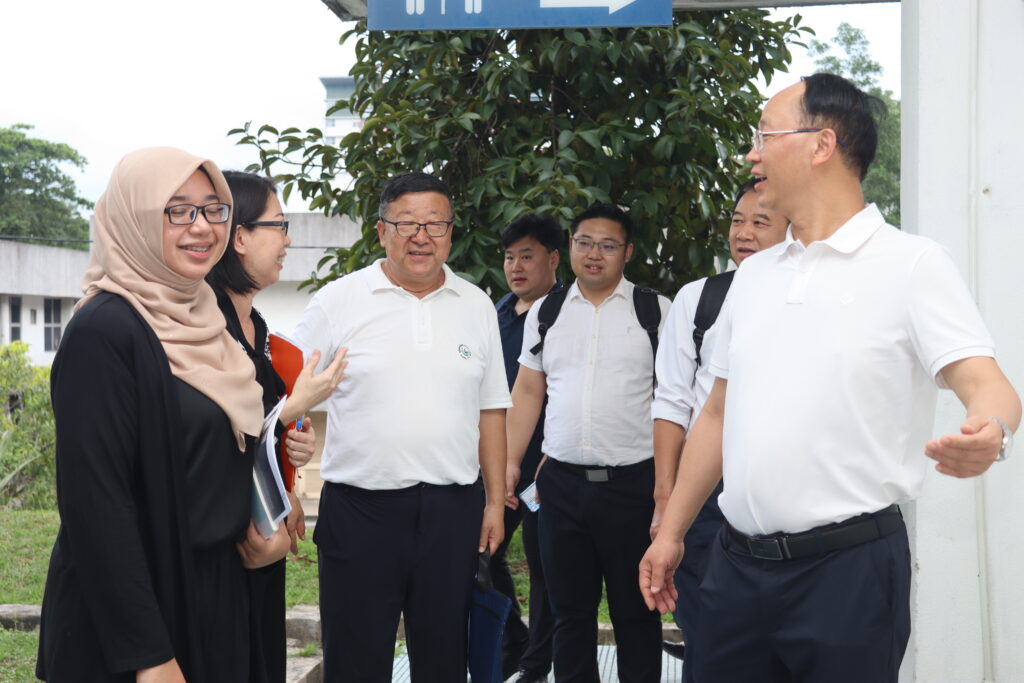
The primary focus of discussions on July 17 was the establishment of a Luban Workshop. Professor Zhang Weijin, a member of Kuala Lumpur University of Science and Technology’s Board of Governors and a Luban Workshop development expert, highlighted that Malaysia currently does not have a Luban Workshop. He expressed sincere anticipation and formally invited Guangxi Transport Vocational and Technical College and Guangxi Transport Science and Technology Group Co., Ltd. to collaborate on creating the first one in Malaysia.
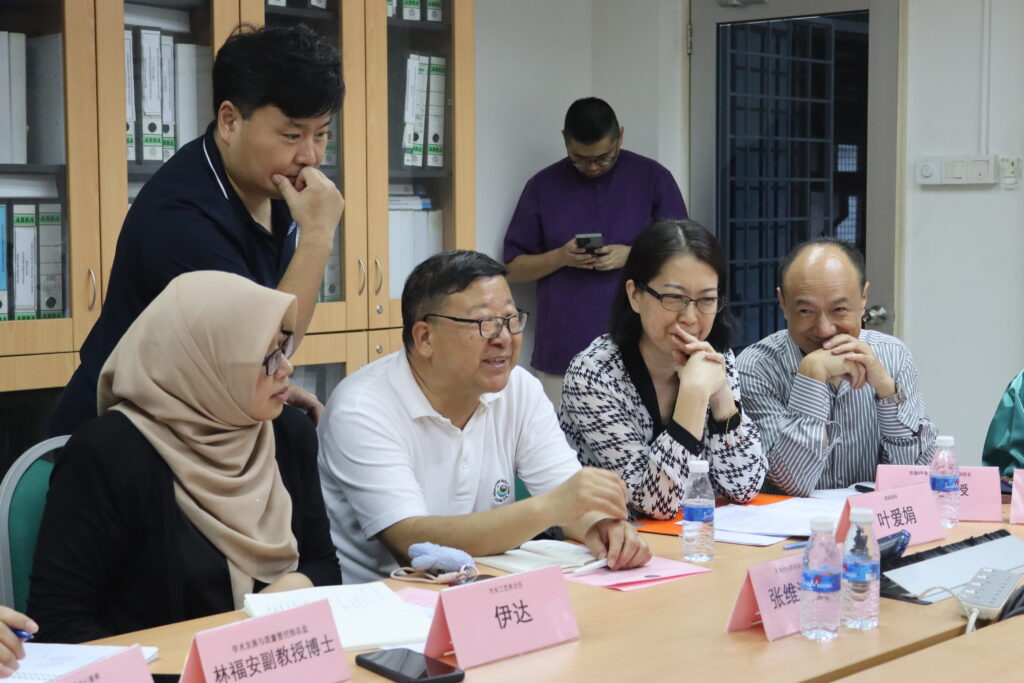
The exchanges delved deeper into specific talent development areas. Regarding Kuala Lumpur University of Science and Technology’s plan to launch an electric vehicle program in 2026, Professor Zhang suggested that students from traditional automotive majors could also benefit from taking relevant electric vehicle courses to enhance their competitiveness in the job market. In response, Professor Liu Xuejun, Dean of the School of Automotive Engineering at Guangxi Transport Vocational and Technical College, outlined the college’s teaching focus on core electric vehicle technologies, including the “three core electric systems” – battery, motor, and electronic control – as well as comprehensive vehicle technology.
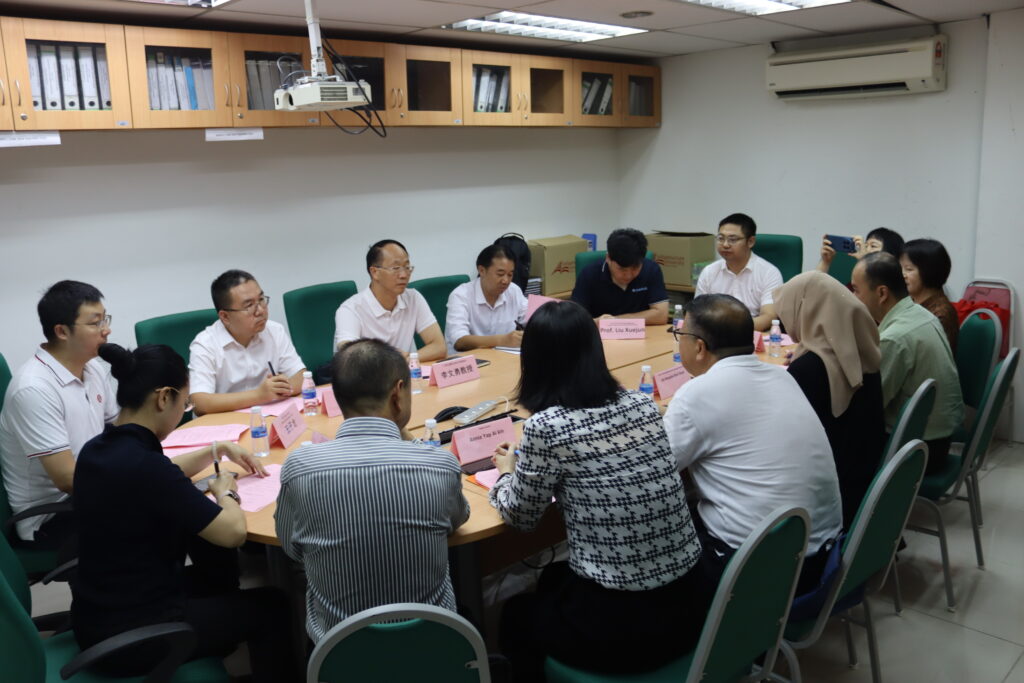
Professor Li Wenyong from Guangxi Transport Vocational and Technical College emphasized the critical importance of understanding local industry needs. He stated that the key initial step is to conduct a detailed investigation into the talent demands of Malaysia’s electric vehicle sector and produce a thorough needs assessment report. This report would then guide the adjustment and optimization of the talent development plan. Professor Li also noted that Guangxi Transport Vocational and Technical College possesses extensive teaching resources that could be shared with Kuala Lumpur University of Science and Technology, requiring only translation for implementation. Drawing on successful past experiences with international teacher training, he warmly invited Kuala Lumpur University of Science and Technology to send faculty to Guangxi Transport Vocational and Technical College for exchange and training programs.
Professor Zhang Weijin responded positively to these proposals, suggesting that after comparing the talent development schemes of both institutions, an “embedded” cooperation model could be adopted. This would integrate high-quality courses from Guangxi Transport Vocational and Technical College directly into Kuala Lumpur University of Science and Technology’s curriculum, working towards the shared vision of cultivating more skilled professionals in the electric vehicle field.
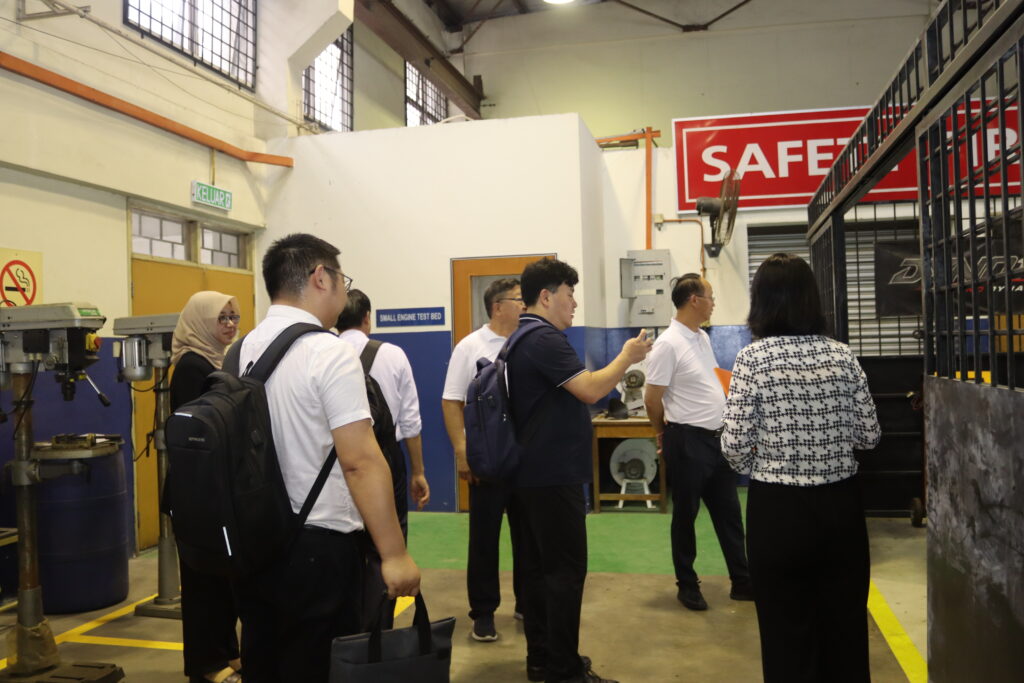
Day Two Advancements: Planning the Smart Transportation Lab and Expanding Infrastructure Cooperation
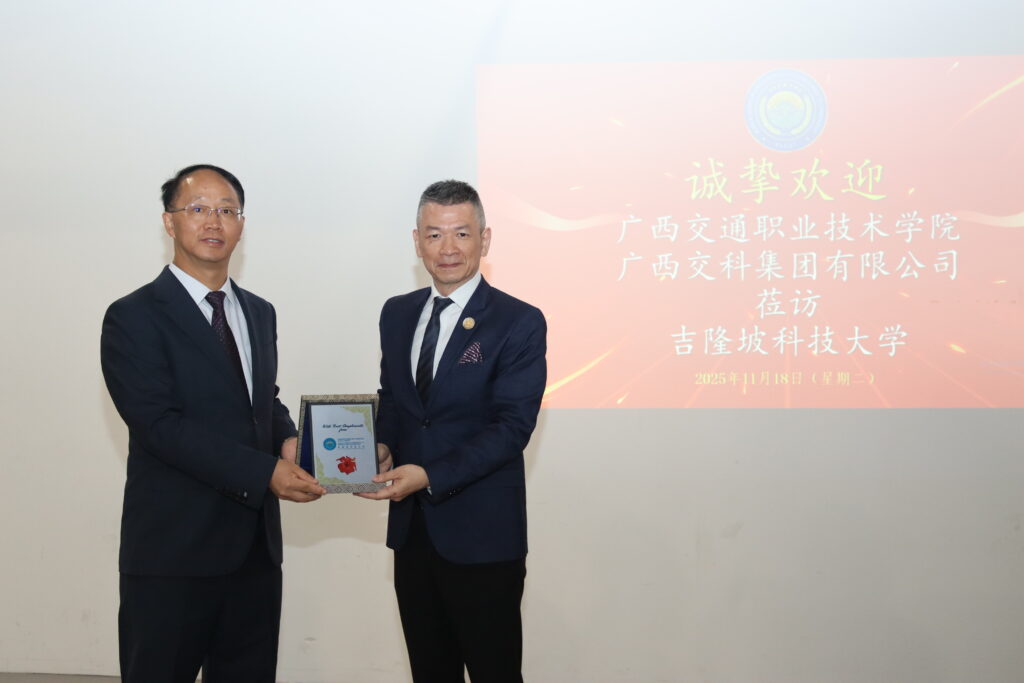
Discussions on July 18 shifted focus to the planning and construction of the “China-Malaysia Smart Transportation Laboratory.” President Li Wenyong of Guangxi Transport Vocational and Technical College expressed that China’s engineering project construction technologies are highly mature and readily transferable to Malaysia. He affirmed their willingness to support local university infrastructure and management development in accordance with Malaysian national standards. President Li specifically pointed out the high similarity in environmental conditions and construction standards between Malaysia and Guangxi, suggesting that cooperation should not be limited to smart construction but could fruitfully extend to traditional construction fields, particularly building materials.
Regarding transportation strategy, President Li highlighted the strategic advantage of Qinzhou in Guangxi as a key logistics hub in the China-ASEAN Free Trade Area, outlining the potential to enhance connectivity with ASEAN countries.
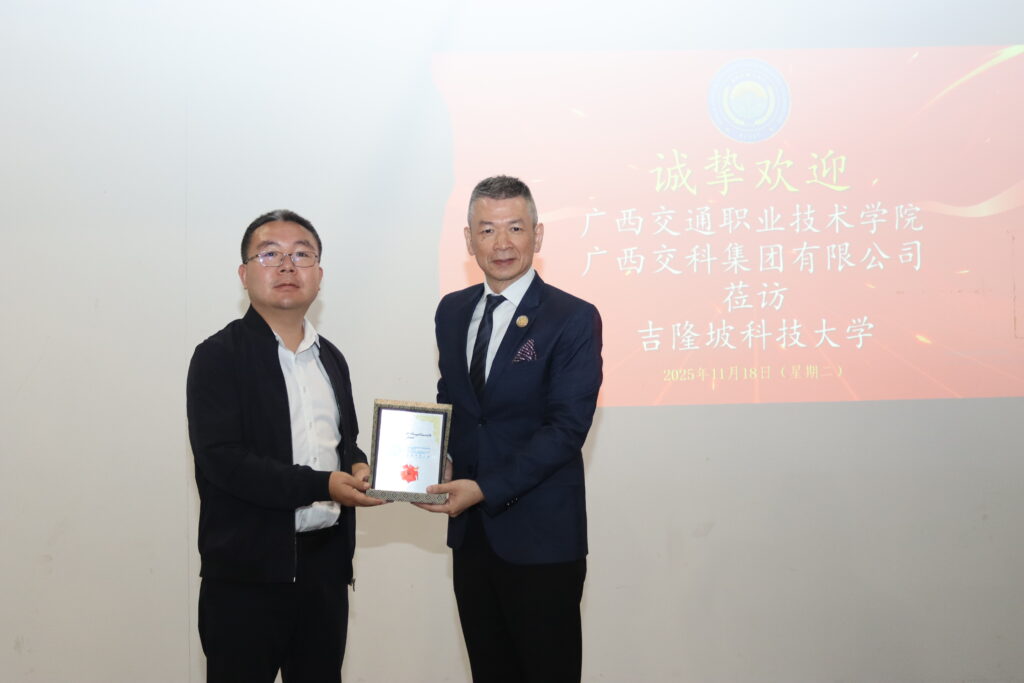
Mr. Hu Weijie, Dean of the Road Engineering Research Institute at Guangxi Transport Science and Technology Group Co., Ltd., added that the group has 40 years of profound experience in road detection. He stated that their comprehensive scientific research capabilities are at the forefront in China, with notable achievements in using artificial intelligence to improve highway detection efficiency. Seeing clear synergies, Mr. Hu expressed confidence in the feasibility of deep collaboration between Kuala Lumpur University of Science and Technology’s strengths in talent cultivation and Guangxi Transport Science and Technology Group Co., Ltd.’s technical expertise, particularly in scientific research and personnel training.
Ms. Sun Cuimei, MC International Education Centre Sdn Bhd Director expressed her delight at acting as a facilitator for China-Malaysia educational cooperation. She stated that MC International Education Centre Sdn Bhd is committed to helping both institutions achieve greater reciprocity, mutual benefit, and scaled-up scientific research collaboration in the future.
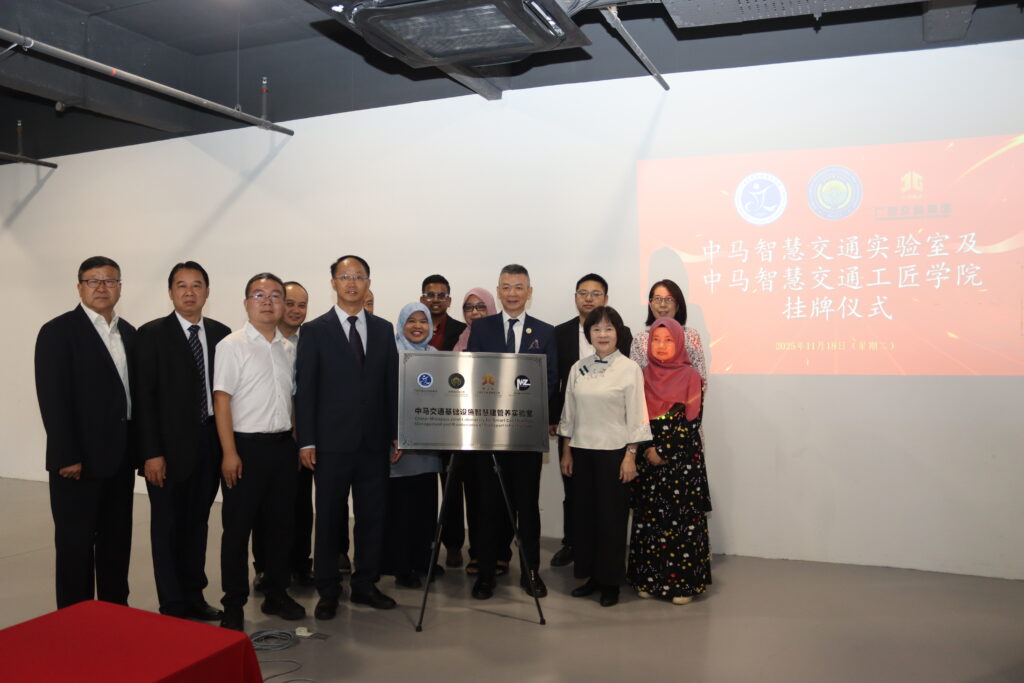
In his concluding remarks, Professor Chen Xiaoyun, Chairman of KLUST, expressed a firm determination to introduce smart transportation technology to Malaysia, pledging to spare no effort in ensuring all constructions meet the highest standards.
The visit culminated in a solemn unveiling ceremony for the “China-Malaysia Smart Transportation Laboratory” and the “China-Malaysia Smart Transportation Craftsman College,” successfully concluding the series of exchanges and laying a solid foundation for future in-depth collaboration.

